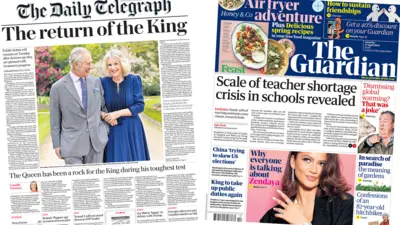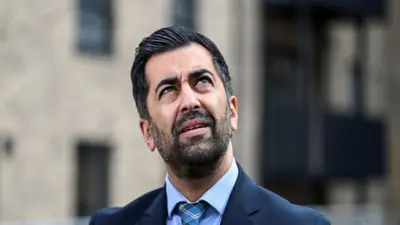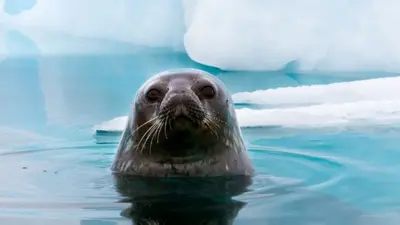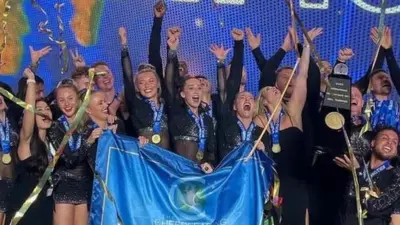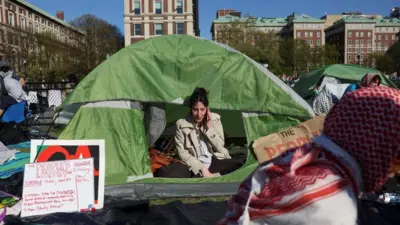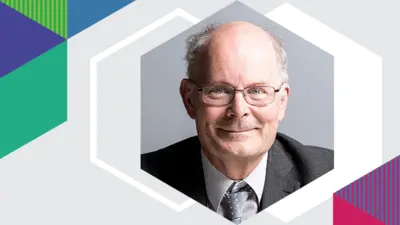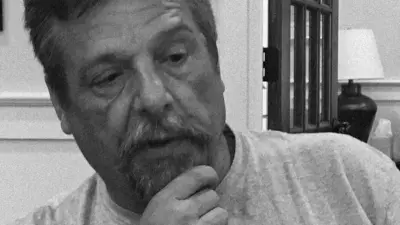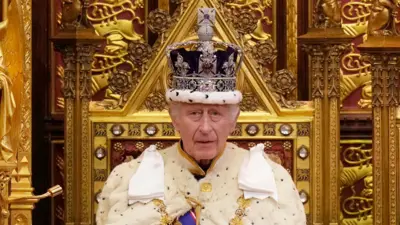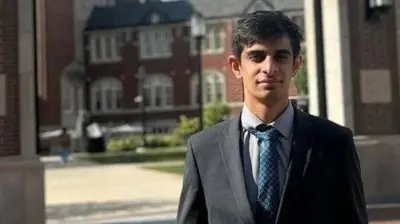We've updated our Privacy and Cookies Policy
We've made some important changes to our Privacy and Cookies Policy and we want you to know what this means for you and your data.
Russian spy: Boris Johnson warns Kremlin over Salisbury incident
Image source, Yulia Skripal/Facebook
The UK would respond "robustly" to any evidence of Russian involvement in the collapse of former spy Sergei Skripal, Boris Johnson has said.
Mr Skripal, 66, and his daughter Yulia, 33, are critically ill in hospital after being found unconscious in Salisbury, Wiltshire.
The foreign secretary said he was not pointing fingers at this stage, but described Russia as "a malign and disruptive force".
Russia has denied any involvement.
Downing Street said Home Secretary Amber Rudd will chair a meeting of Cobra, the government's emergency committee, on Wednesday to discuss the Salisbury investigation.
Counter Terrorism Police have taken over the investigation from Wiltshire Police.
But in a statement, the unit said the inquiry had not been declared a terrorist incident and there was no risk to the wider public.
Family deaths
Relatives of Mr Skripal - a former Russian colonel convicted of spying for Britain - have told the BBC Russian Service that he believed the Russian special services might come after him at any time.
His wife, elder brother and his son have died in the past two years, some in mysterious circumstances, the family believe.
Ms Skripal lives in Moscow and has visited her father in the UK regularly, especially over the past two years.
Mr Skripal and his daughter were found slumped and unconscious on a bench outside a shopping centre on Sunday afternoon.
CCTV footage has been released by police which appears to show the pair walking through an alleyway near a Zizzi restaurant shortly before they collapsed.
Police have since sealed off the restaurant and The Bishop's Mill pub was also cordoned off as a precaution. On Tuesday evening, police extended the cordon and shut off a bridge.
Eyewitness Jamie Paine said the woman he saw was passed out, frothing at the mouth and her eyes "were wide open but completely white".
He added: "The man went stiff, his arms stopped moving but he was still looking dead straight."
Two police officers caught up in the suspected contamination have been treated in hospital for minor symptoms, before they were given the all clear. It is understood their symptoms included itchy eyes and wheezing.
A third member of the emergency services remains in hospital.
Scientists at Porton Down - the UK's secret weapons research facility in Wiltshire - are studying the "unknown substance".
On Tuesday evening, BBC Newsnight's diplomatic editor Mark Urban said there are concerns the pair's conditions could worsen.
Despite the sending of samples, scientists have still not identified the substance and one official at Porton Down said "we are treating symptoms rather than causes", Urban said.
Speaking in the Commons on Tuesday, Mr Johnson said: "Honourable members will note the echoes of the death of Alexander Litvinenko in 2006.
"I say to governments around the world that no attempt to take innocent life on UK soil will go unsanctioned or unpunished."
Mr Johnson said the UK was "in the lead across the world" in trying to counteract a "host of malign activity" by Russia.
Russia has insisted it has "no information" about what could have led to the incident, but says it is open to co-operating with British police if requested.
In a statement, the Russian embassy in London said: "Media reports create an impression of a planned operation by the Russian special services, which is completely untrue."
Responding to Mr Johnson's comments, the embassy added: "Looks like the script of yet another anti-Russian campaign has been already written."
BBC Newsnight's diplomatic editor Mark Urban said Boris Johnson's strongly-worded statement indicates that the Government is "party to some kind of intelligence".
"It's evident from the foreign secretary's statement, and certainly the view in Whitehall is, he would not have gone this far unless the government was party to some kind of intelligence about what had gone on," Urban said.
Who is Sergei Skripal?
Colonel Skripal, a retired Russian military intelligence officer, was jailed for 13 years by Russia in 2006.
He was convicted of passing the identities of Russian intelligence agents working undercover in Europe to the UK's Secret Intelligence Service, MI6.
In July 2010, he was one of four prisoners released by Moscow in exchange for 10 Russian spies arrested by the FBI as part of a swap. He was later flown to the UK.
According to BBC Newsnight's diplomatic editor Mark Urban, in recent years Col Skripal gave lectures at military academies offering insight into Russia's foreign military intelligence agency, the GRU.
Tony Brenton, the former British ambassador to Russia, suggested that Mr Skripal would have had many enemies - including many former colleagues
He said: "The fact that he blew a whole range of Russian agents, there may be personal animosities there.
"In most Russians' minds he would be categorised as a traitor. There are people there who would be delighted to see him dead."
The possibility of an unexplained substance being involved has drawn comparisons with the 2006 poisoning of Alexander Litvinenko.
The Russian dissident and former intelligence officer died in London after drinking tea laced with a radioactive substance.
A public inquiry concluded that his killing had probably been carried out with the approval of the Russian President, Vladimir Putin.
Andrei Lugovoi, the former Russian agent accused of poisoning Litvinenko but who denies the claims, told the BBC that Russia would have considered the matter closed when Mr Skripal was flown to the UK as part of a spy swap in 2010.
Mr Skripal was pardoned by the Russian President and so the incident was over, Mr Lugovoi said.
Igor Sutyagin, who was one of four agents released by Moscow in the exchange, is now a research fellow at the Royal United Services Institute (RUSI).
He told the BBC's World Tonight programme that he was not yet concerned for his safety and added: "I don't think that he (Mr Skripal) would be targeted, because he was pardoned."
But Mr Litvinenko's widow, Marina Litvinenko, told the programme that the latest incident felt like "deja vu" - and called for those receiving political asylum to be protected by the UK.
Meanwhile, the Home Affairs Committee has asked for a review into 14 deaths that have not been treated as suspicious by British police but have reportedly been identified as potentially linked to Russia.
The reaction in Russia
By BBC Monitoring
Russian state TV's coverage of the possible poisoning in the UK of former agent Sergei Skripal has been eccentric, to say the least. State TV remains the main source of news for most Russians.
The main official TV channel, Rossiya 1, covered the story early in the day, but studiously ignored any comparison with the poisoning in 2006 of former Russian FSB officer Alexander Litvinenko, which has been a prominent feature of reports in the UK media.
This evening, the main primetime bulletin on Rossiya 1 and the two other main Russian TV stations, Channel One and NTV, did not touch the story.
The oddities in the coverage did not stop there, though. On Rossiya 24, the country's main news channel and the sister channel to Rossiya 1, the Skripal case was the main story this evening, with a report accusing the UK authorities and media of conspiring to blacken Russia's name. The presenter described the case as a "new classic in British conspirology"
The popular tabloid Komsomolskaya Pravda described the case as "another scandal with a dash of Russophobia".
Russian news agencies reported the indignation expressed by officials as they criticised Boris Johnson's warning to Russia.
"The demonisation of Russia", said a Russian embassy press release.
"This is preposterous," the Foreign Ministry Spokeswoman Maria Zakharova was quoted as telling Interfax news agency.
Mr Johnson's comments are "unacceptable" and in "extremely bad faith," said Konstantin Kosachyov, head of the International Affairs Committee of the Federation Council of the upper house of parliament.
Analysis
By Norman Smith, BBC assistant political editor
Although Boris Johnson was careful to stress this was still an ongoing investigation - it's absolutely clear he, and others in government, believe it's highly likely this was a Russian state-sponsored attack.
The big question now - how does the government respond?
A question made more pressing by accusations that ministers were guilty of appeasement in the wake of Alexander Litvinenko's killing.
Mr Johnson suggested there could be targeted sanctions against those close to President Putin.
And, perhaps most significantly, in an indication the government could seek to rally international support to make a stand against Russia, Mr Johnson said there could be a co-ordinated response with Nato allies.
Whatever measures are eventually decided upon - if Russian involvement is proven - it's clear relations between London and Moscow have plunged to new depths.
Do you have any information to share on this story? Email haveyoursay@bbc.co.uk.
Please include a contact number if you are willing to speak to a BBC journalist. You can also contact us in the following ways:
- WhatsApp: +447555 173285
- Tweet: @BBC_HaveYourSay
- Send pictures/video to yourpics@bbc.co.uk
- Upload your pictures/video here
- Send an SMS or MMS to 61124
You can receive Breaking News on a smartphone or tablet via the BBC News App. You can also follow @BBCBreaking on Twitter to get the latest alerts.
Top Stories
Features & Analysis
Most read
Content is not available
